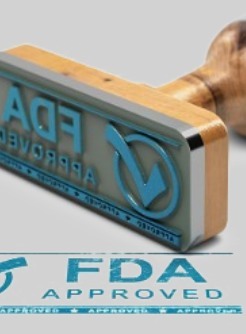Long-Term Survival Benefit Found With Atezolizumab, Bevacizumab Combo for HCC
By Michael Vlessides, /alert Contributor
March 8, 2021
Updated overall survival data from the global IMbrave150 study have revealed that combination therapy with atezolizumab (Tecentriq; Genentech) plus bevacizumab (Avastin; Genentech) provides long-term benefit in patients with previously untreated, unresectable hepatocellular carcinoma.
Twelve months of additional follow-up from the open-label phase 3 investigation found that the drug combination yielded consistent clinically meaningful treatment benefits and safety in this patient population..jpg)
Presenting at the 2021 Gastrointestinal Cancers Symposium of the American Society of Clinical Oncology (abstract 267), the researchers behind the multi-center study explained that previous results from IMbrave150 (NCT03434379) led to global approval of atezolizumab plus bevacizumab. That investigation found that at a median follow-up of 8.6 months, the novel drug combination yielded statistically significant and clinically meaningful improvements over sorafenib for both overall survival and progression-free survival. In the current study, the investigators reported updated overall survival analyses from the study.
According to lead author Richard S. Finn, MD, of the Geffen School of Medicine at UCLA in Los Angeles, California, IMbrave150 comprised 501 systemic treatment-naïve patients with unresectable hepatocellular carcinoma. The participants all had one measurable, untreated lesion, Child-Pugh class A liver function, and an Eastern Cooperative Oncology Group performance status of 0 or 1.
The participants were randomized 2:1 to receive either 1200 mg intravenous atezolizumab every three weeks plus 15 mg/kg intravenous bevacizumab every three weeks (n=336), or 400 mg twice-daily sorafenib (n=165). Drug administration continued until patients experienced unacceptable toxicity or loss of clinical benefit.
“This post hoc, descriptive overall survival analysis was conducted with 12 months of additional follow-up from the primary analysis,” the authors wrote.
At the trial’s clinical cut-off date of August 31, 2020, the median follow-up was 15.6 months. Over that time, 280 overall survival events were observed.
The study found that median overall survival was 19.2 months with atezolizumab-bevacizumab combination therapy, significantly longer than the 13.4 months observed with sorafenib (hazard ratio 0.66; p=0.0009). Survival at 18 months was 52% with atezolizumab plus bevacizumab and 40% with sorafenib. The survival benefit of atezolizumab-bevacizumab relative to sorafenib was largely consistent across subgroups.
At the follow-up analysis, the updated objective response rate per RECIST 1.1 was found to be 29.8% with combination therapy – consistent with data from the study’s primary analysis, and significantly better than the 11.3% observed with sorafenib. Similarly, 25 combination-therapy patients (7.7%) achieved complete response, higher than previously reported and significantly greater than the one patient who received sorafenib (0.6%).
Atezolizumab-bevacizumab also proved superior to sorafenib in terms of partial responses (22.1% vs 10.7% per RECIST 1.1). On the other hand, the two treatment approaches proved comparable with respect to the percentage of patients with stable disease (44.2% and 43.4%, respectively) and median duration of response (18.1 months and 14.9 months, respectively).
Longer-term analyses of safety and tolerability were in line with those of the primary analysis. No new signals were identified.
Given these results, Dr. Finn and his colleagues concluded that updated analyses from IMbrave150 revealed consistent safety and treatment benefit from atezolizumab-bevacizumab.
“The combination provides the longest survival seen in a front-line phase 3 study in advanced hepatocellular carcinoma, confirming atezolizumab plus bevacizumab as a standard of care for previously untreated, unresectable hepatocellular carcinoma,” the authors wrote.


.jpg)














